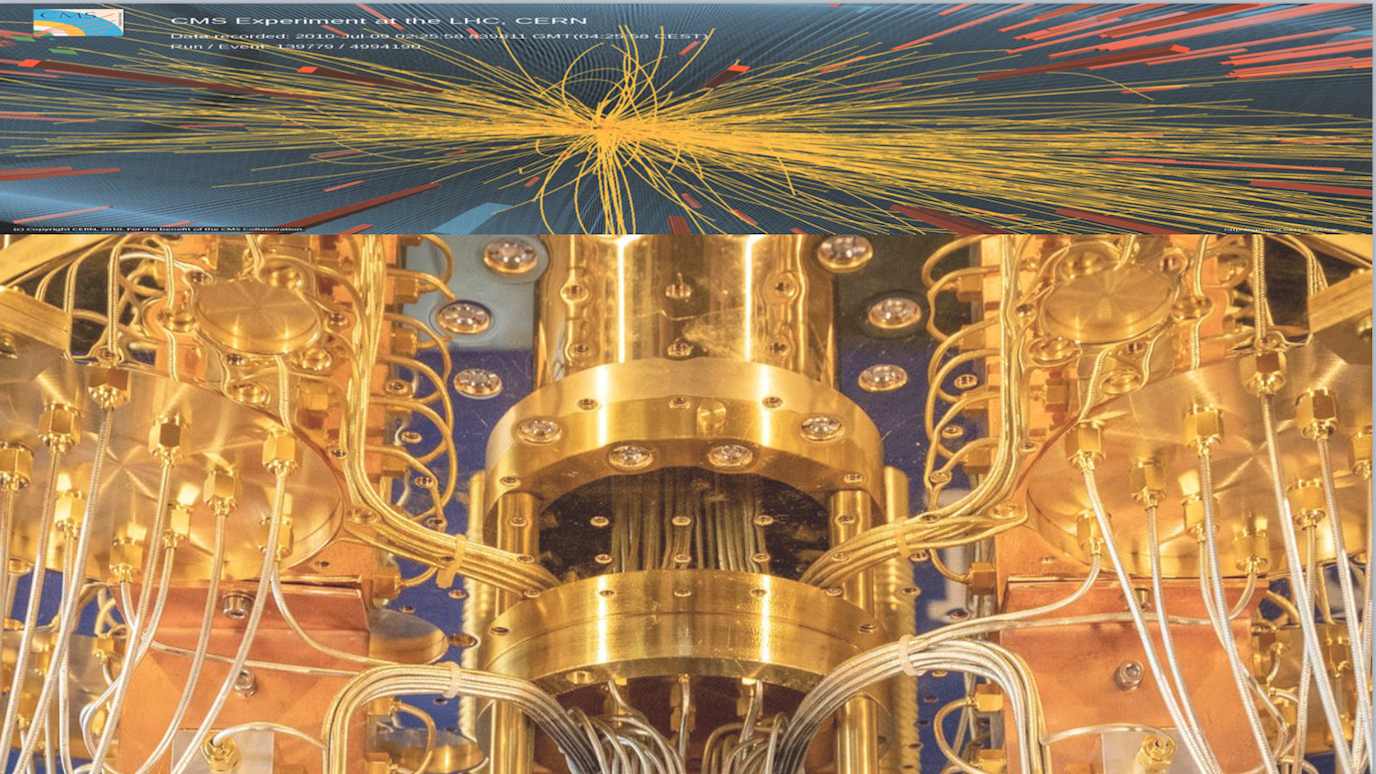Dr Sarah Malik (Imperial College London)
The simulation of high energy collisions at experiments like the Large Hadron Collider (LHC) relies on the performance of full event generators and their accuracy and speed in modeling the complexity of multi-particle final states. The rapid improvement of quantum devices presents an exciting opportunity to construct dedicated algorithms to exploit the potential quantum computers can provide.
I will present general and extendable quantum computing algorithms to calculate two key stages of an LHC collision: the hard interaction via helicity amplitudes and the subsequent parton shower process. These algorithms fully utilise the quantum nature of the calculations and the machine's ability to remain in a quantum state throughout the computation. It is a first step towards a quantum computing algorithm to describe the full collision event at the LHC.

Quantum computing for simulating high energy collisions (Dr Sarah Malik)




















